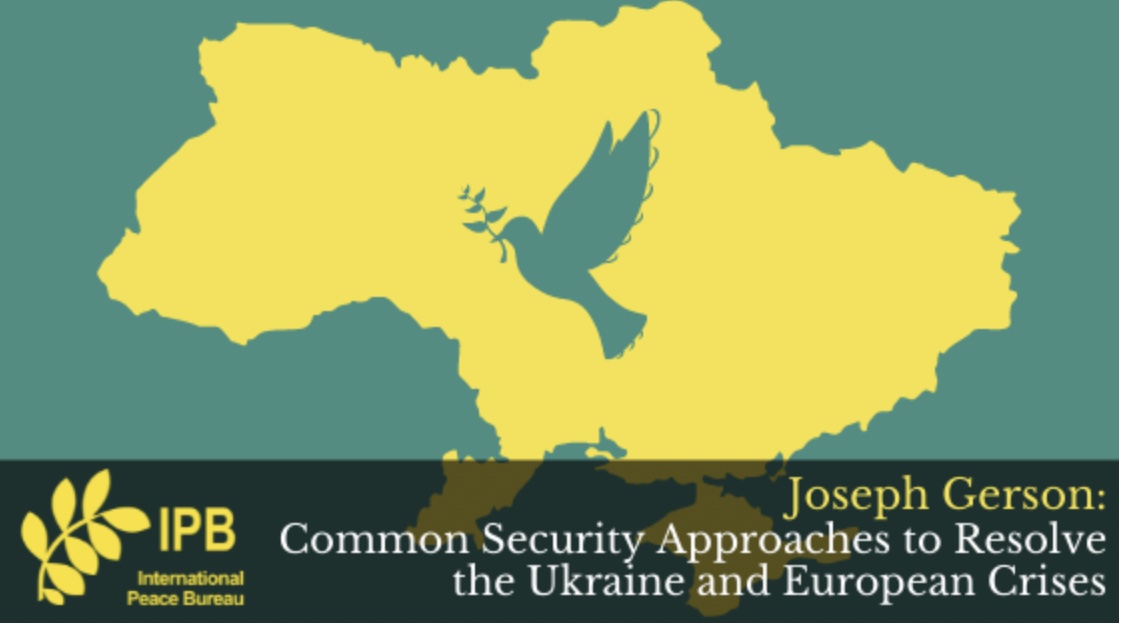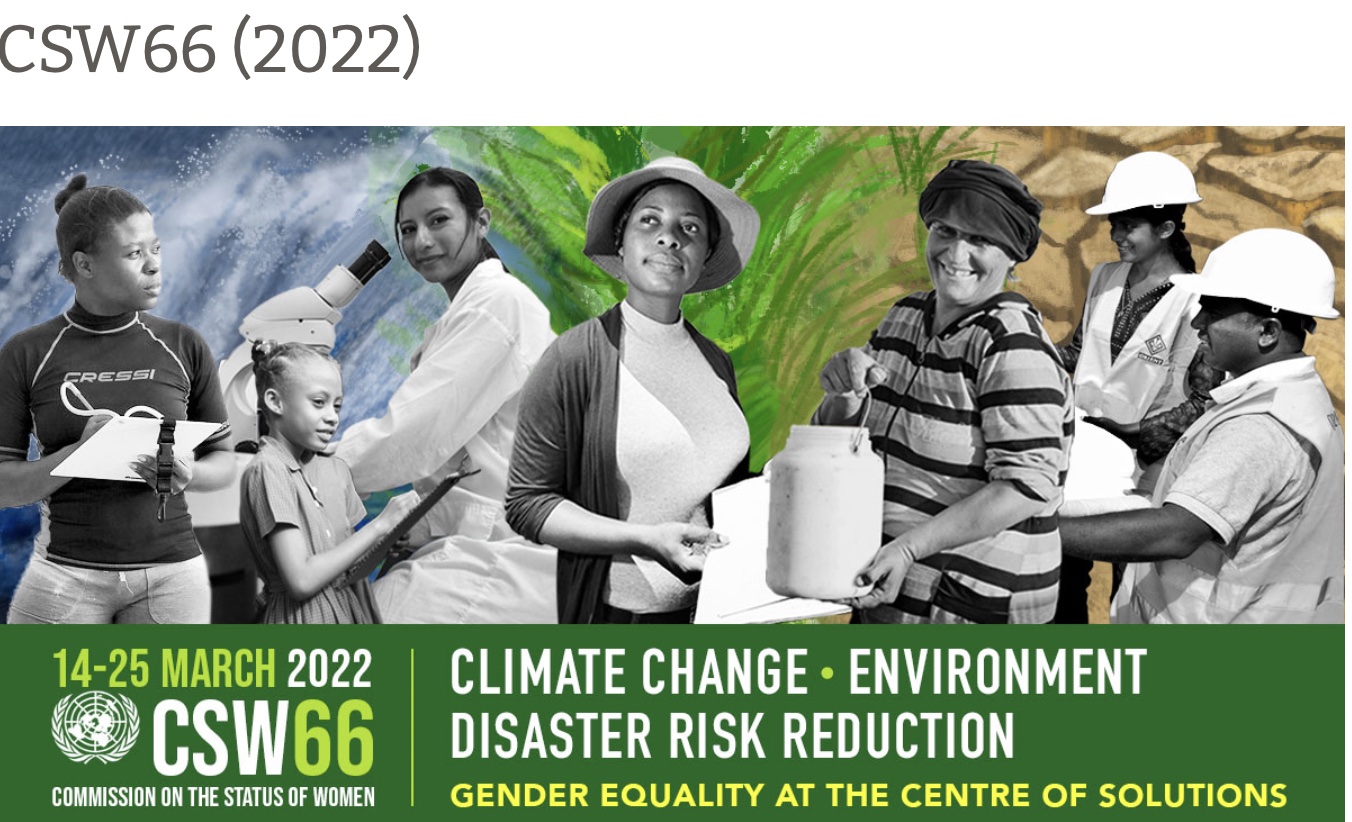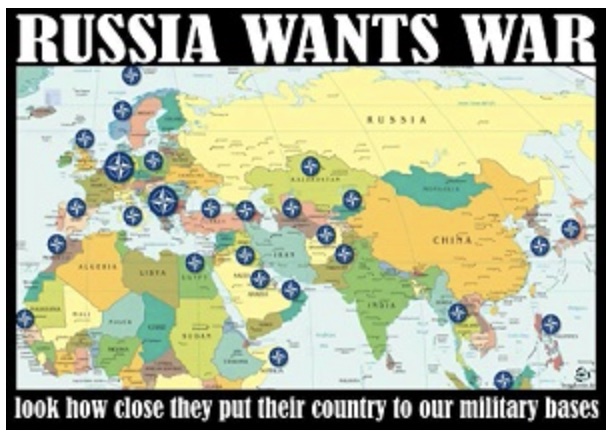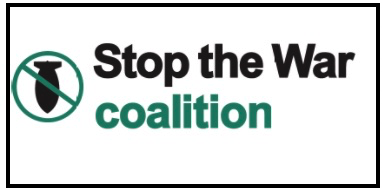DISARMAMENT & SECURITY .
An article by Joseph Gerson for the International Peace Bureau
We have been bombarded by news reports and announcements from President Biden and Secretary of State Blinken that a Russian invasion of Ukraine is imminent. On January 18, as he prepared to leave for Kyiv, Berlin and Geneva, Secretary of State Blinken, said “We’re now at a stage where Russia could at any point launch an attack in Ukraine.” A day later President Biden announced that he expected Russian President Putin to order an invasion. And both backed their fear inducing warnings with the less than fully accurate claim of NATO unity and the threat that a Russian invasion of Ukraine will be met with “severe, and united response.”.

Remarkably, across Europe, there has been a relative absence of fears of an imminent Russian invasion. The belief there is that the 100,000 troops Russia has deployed along its borders with Ukraine are a negotiation ploy. And when Secretary Blinken and Russian Foreign Minister Lavrov met in Geneva they committed to future diplomacy.
This has been a totally unnecessary crisis, fueled in large measure by U.S. insistence on maintaining NATO’s “open door” policy, when the reality is that there is no way that France or Germany will agree to Ukraine becoming a NATO member state. Resolution of the crisis could be hastened were President Biden or Secretary Blinken to state the obvious: “We understand there are deep insecurities on all sides. Given that our allies are in no hurry to welcome Ukraine into NATO, we propose a moratorium on new NATO memberships. Beyond that, we look forward to a range of constructive negotiations to establish an enduring Eurasian security framework for the 21st century.”
Such a statement would bring all the contending forces back from the brink. Instead, U.S. insistence on maintaining the possibility of Ukraine and Georgia joining NATO is exacerbating the multifaceted crisis.
The crisis has been years in the making. In 1990, the Organization for Security and Cooperation in Europe’s Paris Charter, signed by 34 heads of state, “ushered in a new era as states made an unprecedented commitment to domestic individual freedoms, democratic governance, human rights, and transnational cooperation.” Seven years later, it was followed by the NATO-Russia Founding Act, which enshrined commitments to equal security and to not seek security at the expense of the other’s security. And in 1999 the OSCE’s European Security Charter its member states committed “not to strengthen their security at the expense of the security of other States.”
More than Ukraine’s uncertain fate, it is the violation of these commitments to create a post-Cold War European security order that lies at the heart of the current dangerous crisis. Malcolm X would have said, the chickens have come home to roost.
Rather than acknowledge and compensate for errors made along the way, U.S. and NATO leaders’ arrogant inability to acknowledge legitimate Russian security concerns have precipitated what is termed the Ukraine crisis. It is actually a trans-European crisis. Contrary to all sides’ harsh public rhetoric, a near-term Russian invasion of Ukraine appears to be unlikely. But it could be triggered by an unintended incident, accident, or miscalculation.
There are realpolitik and Common Security diplomatic options that could resolve the crisis and build on the Paris Charter and the NATO-Russia Founding Agreement. They have been advocated by Former U.S. ambassador to Russia James Matlock and in off the record Track II discussions among other U.S., Russian, and European former officials and security analysts.
Three interrelated crises – not one
Developing mutually beneficial diplomatic solutions requires disaggregating what is commonly presented as a single crisis. We are, unfortunately, confronted by at least three entwined crises, not one: (1) The struggle between Galician (western) and Russian-oriented (eastern) Ukrainians over Ukraine’s identity and its future; (2) the crisis in Russian-Ukrainian relations, which has deep historic roots; (3) competing ambitions of two empires that are in decline (U.S. and Russia) to reinforce their power and influence across Europe, compounded by the inability of European nations to create an enduring post-Cold War security system.
Ukraine’s Identity Crisis: Given stark divisions in the United States, which date to 1619, our civil war, and across the 20th century, we should appreciate the histories that reverberate across Ukrainian culture and politics. For those wanting detail, Richard Sakwa’s Frontline Ukraine is an excellent resource. In short, Kievan Rus’ and its 988 conversion to Eastern Orthodoxy lie at the foundation of the Russian nation. In the 1400s, Ukraine became part of the Lithuanian and later Polish empires. As a consequence, those in the Galician west are predominantly Catholic, Western oriented, and Ukrainian speakers, while those in the east are primarily Russian Orthodox, Russian oriented, and Russian speakers. In pursuit of creating a warm water port for a Black Sea fleet, Russia’s Catherine the Great annexed Crimea in 1783. and during three Russo-Turkic wars and divisions of Poland during her rule, Ukraine fell fully under Russian control.
In the 20th century, millions of Ukrainians died of starvation in the 1930s as a consequences of Stalin’s brutal agricultural collectivization. With no love for the Soviets or Russia, anti-Soviet forces in eastern Ukraine allied with Hitler and joined his devasting march to the east. The first major Holocaust massacre of Jews was inflicted at Babi Yar, a ravine near Kyiv. At war’s end, Ukraine was re-unified with the Soviet Union, with Khrushchev transferring Crimea to Ukraine in 1954. With the breakup of the Soviet Union in 1991, Ukraine became an independent state, surrendering the arsenal of Soviet nuclear weapons that had been left behind in exchange for solemn Russian, U.S., and European commitments to honor Ukraine’s territorial integrity.
As a consequence of its historic ties with Russia and the Soviet Union, eastern Ukraine’s economy was deeply integrated with Russia, while many in the west sought prosperity through ties with the West. In 2013, application was made to join the European Union, but when the E.U. demanded an all or nothing relationship; that ties to Russia would have to be severed, Ukraine’s Prime Minister Yanukovych withdrew the application, which precipitated the Maidan crisis:: mass and initially nonviolent demonstrations in the heart of Kyiv. Contrary to the norm of respecting the national self-determination of other countries, Senator McCain, U.S. Assistant Secretary of State Victoria Nuland, and CIA Director Brennan felt called to join the Maidan revolt. A compromise, moving up the date for elections, was reached but was then breached by armed protestors, leading Prime Minister Yanukovych to flee the country. Proclamations of independent Donetsk and Luhansk People’s Republics in eastern Ukraine, reinforced by the intervention of Moscow’s “little green” and unofficial military forces followed. Russia reclaimed Crimea and its Black Sea Fleet, and the relatively low intensity civil war has followed.
Russia & Ukraine: The Russian-Ukrainian dimension of the crisis speaks for itself. Kiev was central to the creation of the Russian nation a millennium ago. Eastern Ukraine remained an integral element of the Russian and Soviet empires for centuries, (while Galicia was ruled by Poland, Lithuania and Austria from the 13th century to the end of World War I). This history has been reinforced by Russia’s self-appointed responsibility to defend Europe’s Slavs, a powerful current in Russian culture, not to mention its linguistic and religious ties to Ukraine. Most Russians believe the Crimea and eastern Ukraine are inherently Russian, and more than a few extend Russian claims to Kyiv.
Most Ukrainians and much of the world don’t share this perspective. There is a long history of Ukrainian resistance to Russian dominance and rule. Respect for the Ukrainian territorial integrity promised when the nuclear arsenal was surrendered is an unambiguous pillar planted in international law. And just as Northern armies in the U.S. had the constitutional right to defeat southern secessionists backed by England in the 1860s, so it is that Ukraine’s government is deemed to have the right to repress secessionist efforts. There are, of course, exceptions to this rule.
The U.S., Russia & NATO: Since the end of the U.S.-Soviet alliance that defeated Hitler, the U.S. and Russian empires have competed for control and influence over much of Europe. With Roosevelt’s, Churchill’s, and Stalin’s division of Europe at Yalta in 1945 – including the division of Germany – Russia transformed eastern Europe into harshly ruled satellite nations that served as a buffer, a guarantee against future invasions from the West. This was not entirely unlike the Monroe Doctrine with which the U.S. has kept competing powers at a distance and with few exceptions obedient national leaders in place for more than 200 years.
For its part, the U.S. launched the Marshall Plan to ensure political as well as economic stability across Western Europe. With the creation of the NATO military alliance in 1949 and U.S. troops based across much of Europe, Washington was assured that it could, as the Alliance’s first General Secretary observed, “keep Germany down, Russia out, and the United States in.” Berlin’s contested status made it the world’s most dangerous Cold War flashpoint. And respecting the Yalta agreement, the U.S. did not directly intervene to support Polish, Hungarian or East German revolts against Soviet rule, and the Soviets held back from directly intervening on the side of communists during the Greek civil war or in response to U.S. subversion of French and Italian elections.
Gorbachev’s refusal to intervene to preserve Soviet East European clients and the breaching of the Berlin wall marked the end of Yalta’s division of Europe. Russia’s buffer against the West disappeared, ushering in a period of hope and uncertainty. For a brief period, building on the Common Security paradigm (the understanding that security cannot be achieved against a rival nation, but only with the rival) that laid the foundation for the end of the Cold War and the Intermediate Nuclear Forces Treaty), and reinforced by the 1990 and 1997 accords, a vision of a common house of Europe prevailed.
(Continued in right column)
Questions related to this article:
Can the peace movement help stop the war in the Ukraine?
How can the peace movement become stronger and more effective?
(Continued from left column)
This vision and the commitments were shattered when President’s Clinton and George W Bush took advantage of Russia’s immediate post-Soviet chaos and weakness by extending NATO to the East. The German Reunification Treaty had earlier been negotiated on the condition that no NATO forces would be based in eastern Germany. Pledges made by President Bush and Secretary of State Baker in the course of the negotiations to the effect that NATO would not move a centimeter closer to Russia led the Russian elite to believe these U.S. commitments. That Gorbachev failed to get these commitments in writing is rued by Russians in the know to this day.
Notably, the author of the United States’ Cold War containment doctrine, George Kennan, warned at the time that expanding NATO to Russia’s border would trigger a new Cold War. True, given 20th century history and even earlier divisions of Poland, eastern European nations had reason to seek enduring assurances for their national security, but means other than NATO membership, were not pursued.
In the decades that followed, the NATO alliance reached Russia. U.S. and German troops are now based and conduct exercises along Russia’s borders.
Putin’s response
Russia’s identity and great power status has increasingly put Moscow on the defensive. The Paris Charter and Russia-NATO Foundational Act guarantees are a shambles. Moscow has been embarrassed by having been unable to defend Slavic Serbia when Yugoslavia was dismembered. There is a pro-Western government in Kyiv. And NATO signaled possible future Ukrainian and Georgian membership, while NATO forces conduct exercises along Russia’s border, and U.S. naval and air forces are pressing against Russia across the Baltic and Black Seas. It should thus be no surprise that Putin has responded in the tradition of the best defense being a good offense.
First he challenged the United States’ declining Middle East hegemony by intervening militarily on behalf of Syria’s Assad dictatorship. The Russian navy and air force engaged in provocative confrontations with Western warships and warplanes in and over the Baltic and Black Seas. Russia’s functional alliance with China has been deepened. And Putin has now challenged the U.S., NATO and certainly Ukraine by surrounding the country from three sides with 100,000 troops and which are arguably in a position to conquer all or part of that nation.
Putin and his government have a powerful hand, but not a sure one. As Secretary Blinken and NATO allies have warned, Western economic retaliation against Russia, should it invade Ukraine, could have severe consequences for the Russian economy and thus Putin’s hold on power. Russia would face the debilitating consequences of drawn-out Ukrainian insurrectionist resistance, not unlike what both the Soviets and the U.S. suffered in Afghanistan and the U.S. in Vietnam. It would face the restrictions of increasing international isolation. And the Ukraine crisis has already led to further consolidation of the NATO alliance and deepened Swedish and Finnish alignment with NATO.
Perhaps most worrying, while President Biden and NATO have for the moment ruled out a military counterattack should Russia invade Ukraine, nothing is certain in war. Just as unanticipated gunshots triggered an unwanted World War in 1914, today an incident, accident or miscalculation, compounded by powerful nationalist forces, could lead to wider, great power, and potentially nuclear war.
Fortunately, Russian diplomats have repeated that Russia does not intend to invade Ukraine, and diplomacy remains the order of the day.
Common security alternatives
We may be horrified by Putin’s authoritarian rule and by Russia’s past military aggression and today’s implied threats. That doesn’t make them go away. The reality is that the U.S., Russia, and many of their allies have been practicing international relations in the tradition of Mafia dons. President Biden’s and Secretary of State Blinken’s arrogant, stiff necked, anti-historical, and ultimately self-defeating insistence on holding to the fantasy of possible future Ukrainian NATO membership only deepens the compounded crisis. When elephants fight, they threaten not only one another, but the ants and grass beneath them. Someone is bound to be hurt.
The Biden Administration would do well to begin by stating that in the face of the West’s violations of the Paris Charter, the NATO-Russia Founding Act, and the understandings that NATO would not move another centimeter eastward, the U.S. acknowledges that Russians have more than a little reason on their side.
Despite the bellicose tone of the public rhetoric and propaganda that preceded and has followed recent diplomatic encounters, some progress has been made. For the first time in two years there have been something approaching open and “business like”—if not warm—exchanges. All sides’ red lines have been clearly identified. Behind closed doors, there is increasing recognition that resolution of the crisis will require reciprocity in future negotiations on the range of outstanding issues. And commitments for future negotiations have been made.
Winston Churchill, racist, colonialist, and alcoholic though he was, had it right when he said that “jaw-jaw is better that war-war.” Difficult and complex though the challenges of this moment may be, with rationale and Common Security diplomacy, this crisis can be transformed into an opportunity.
As former U.S. ambassador to Russia James Matlock and others have advised, there is an obvious solution to the Ukraine crisis: Building from the Minsk II agreement that made the 2014 ceasefire possible, U.S., Russian, Ukrainian, and European negotiations should lead to the creation of a neutral and federated Ukrainian state. Austrian, Finnish, and Swiss neutrality provide ample precedents, and recall that long ago Belgium was created to serve as a buffer between the French and Dutch empires. Further, in the tradition of Swiss cantons, a federation allowing for linguistic, religious, cultural, and some political autonomy could provide long-term Ukrainian stability, prosperity, and if they so wish democracy.
In the above mentioned Track II discussions, a host of other possible options, compromises and processes to address broader Eurasian insecurities have been identified. We can hope that they are embraced by those in power and serve as the basis for future negotiations. They include:
° With Russia insisting on permanently banning Ukrainian NATO membership, and both France and Germany opposed to Ukraine joining the alliance, the Biden Administration could save face by agreeing to a moratorium on new NATO memberships for the next 15 years. This commitment could be extended by mutual agreement after that. A model for such an agreement would be the European Union’s functional moratorium on consideration of Turkey’s application for E.U. membership.
° Moldova, and Georgia, as well as Ukraine could become neutral states.
° While reaffirming Russia’s sovereign right to deploy its military forces wherever it deems appropriate WITHIN Russia, there could be an agreement by both sides to limit military exercises and border patrols.
° Renewed arms control negotiations, beginning with renewal of the INF and Open Skies treaties,
° no deployment of NATO conventional or nuclear strike forces in countries bordering Russia and moving to major reductions of their omnicidal nuclear arsenals.
A former senior U.S. military officer, now a scholar at a leading U.S. university notes that there would be advantages for the U.S. and NATO to use the NATO-Russian Foundation agreement as a mutually beneficial foundation for future agreements. They place limits on Russia’s actions, as well as those of the U.S. and NATO.
° They limit both NATO and Russian deployments.
° In 1997 there were no Russian nuclear weapons in Kaliningrad on Poland’s border and no Russian troops in the Donbass, South Ossetia, Abkhazia, and Moldova.
° Crimea was in Ukraine in 1997, and there were fewer Russian troops there at that time. The number of Russian troops in Crimea could thus be reduced, and a referendum about Crimea’s future could come after the reduction of Russian forces there.
° NATO and Russian troops could be banned from the former Soviet Republics.
° Trades could of course be made to modify the 1997 limits and could include Russian annexation of Crimea being offset by guarantees for the Baltics.
And Europeans involved in these discussions have suggested negotiating agreements on non-deployment of strike forces by either side, negotiating an updated version of the INF Treaty which Trump and then the Russians abandoned, and banning potentially-first strike-related “missile defenses”.
Another world, at least another, more peaceful and just Europe, is possible. We must press for continued commitments to negotiations and do what we can to ensure that rational common security solutions prevail.
Dr. Joseph Gerson is President of the Campaign for Peace, Disarmament and Common Security.
















